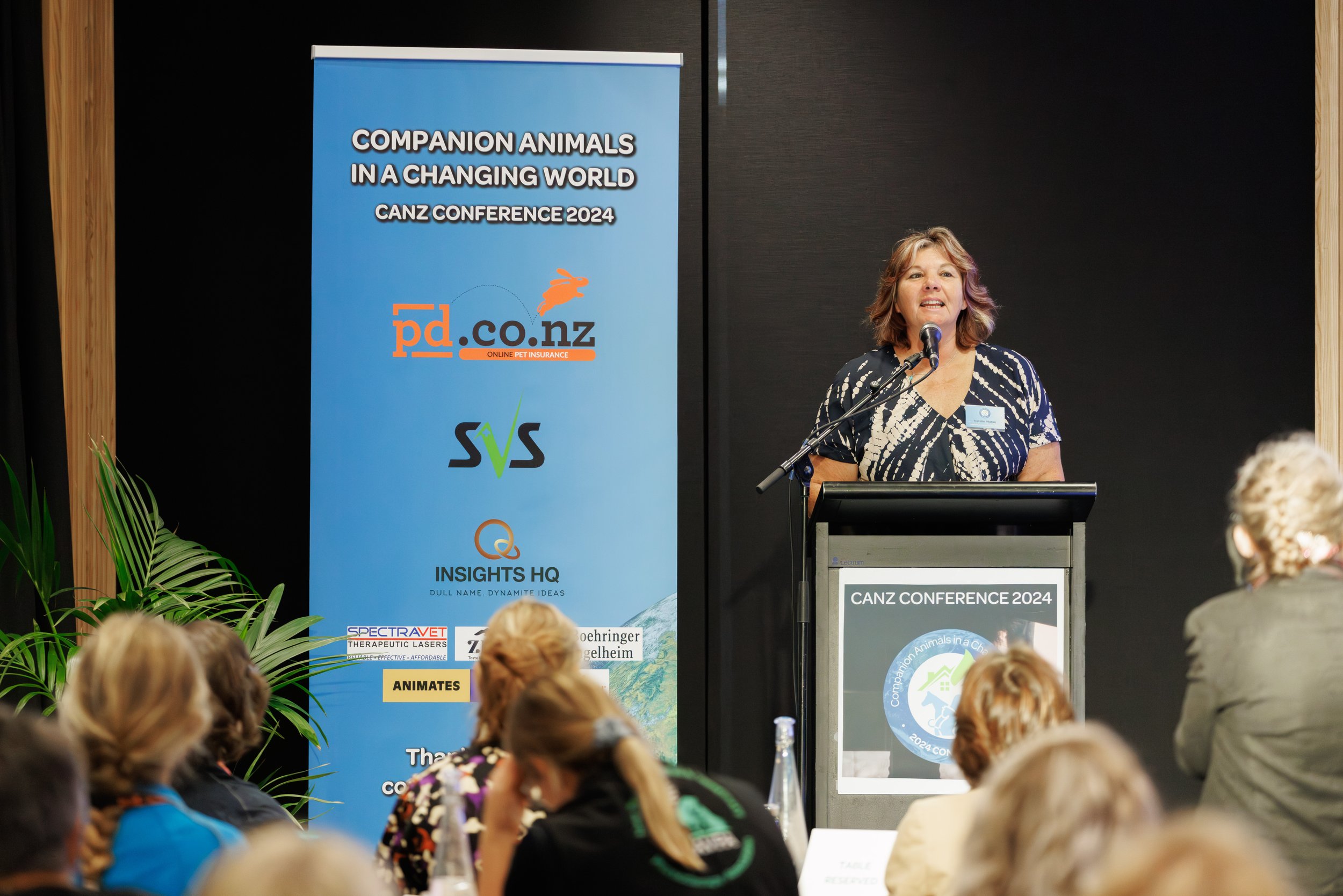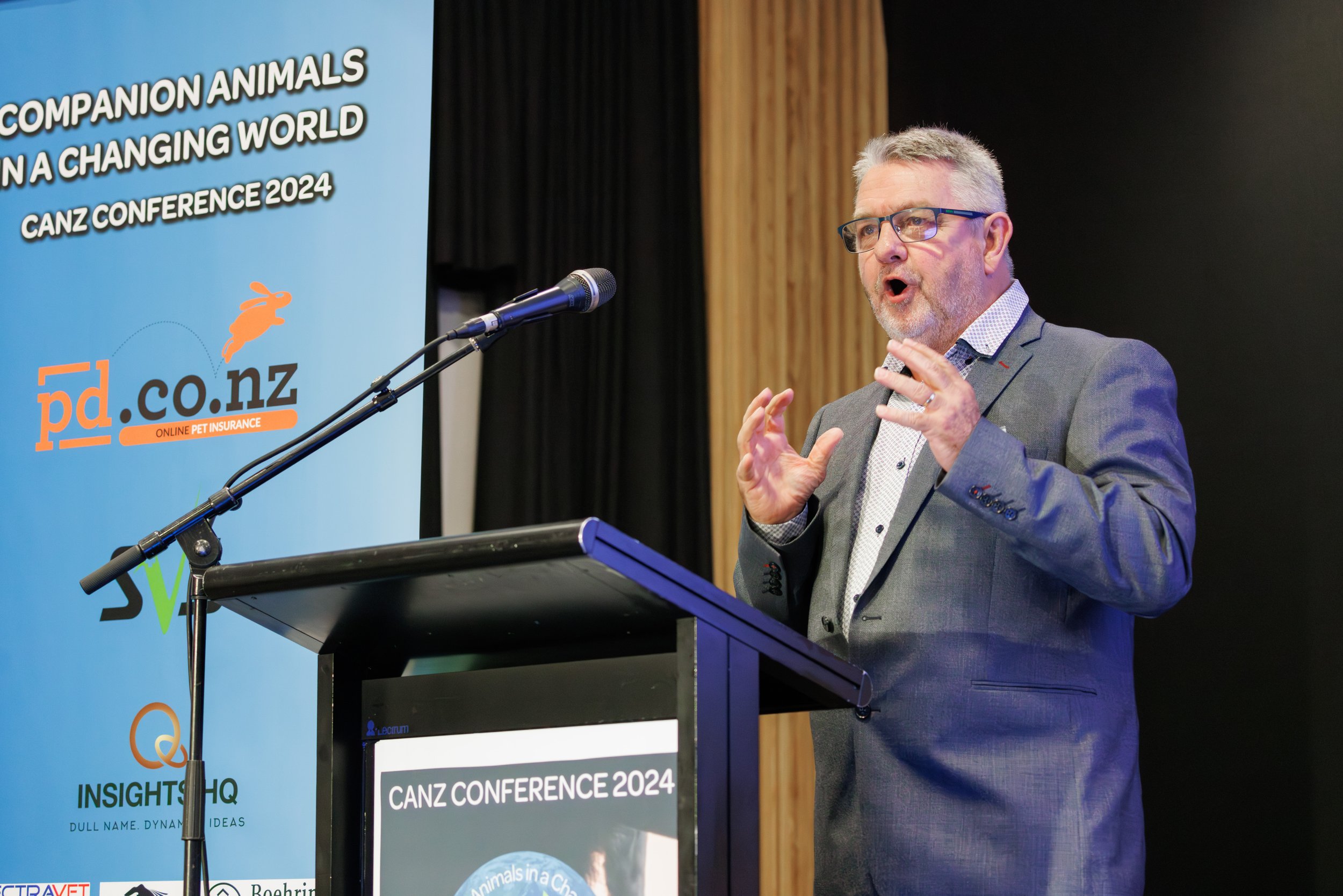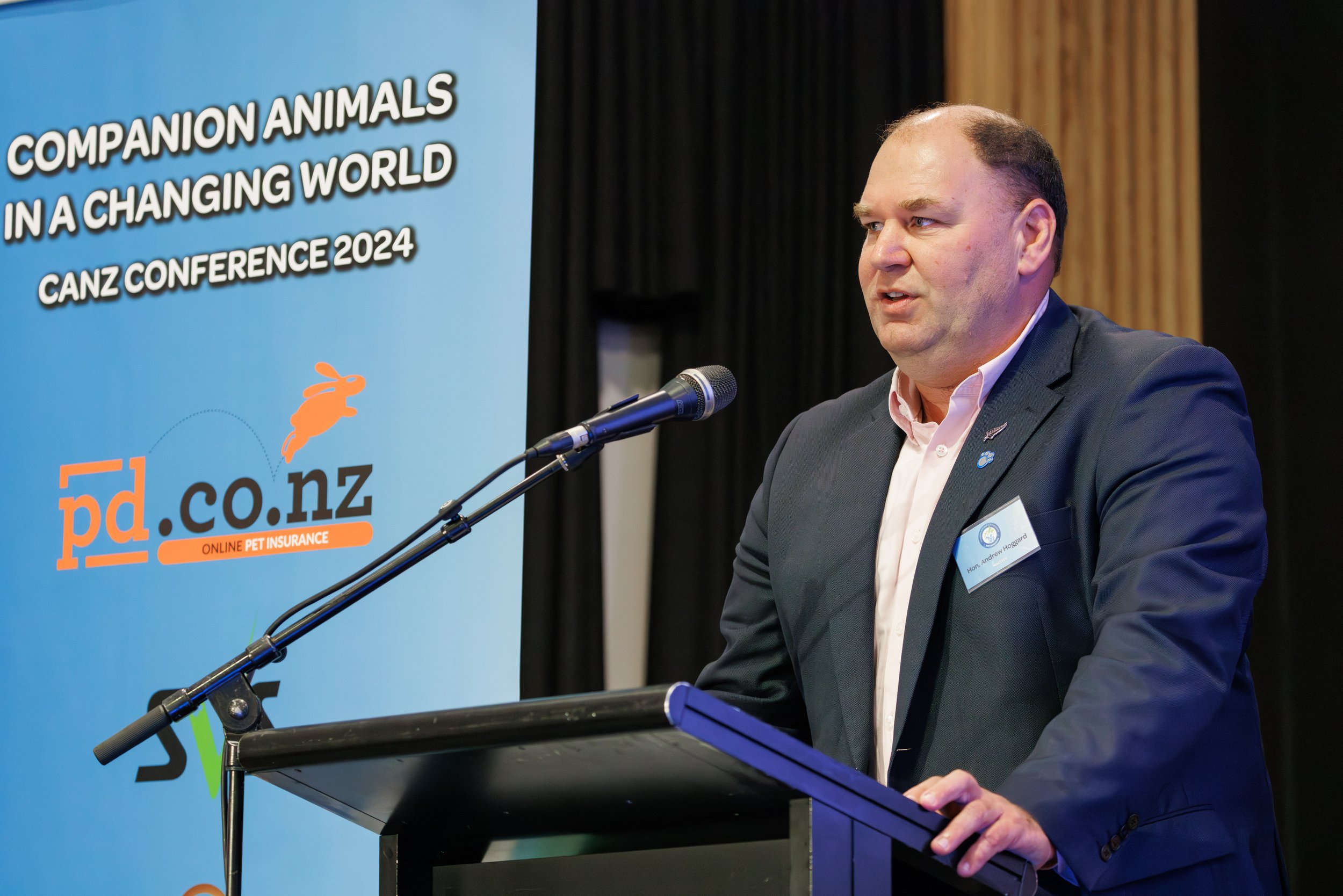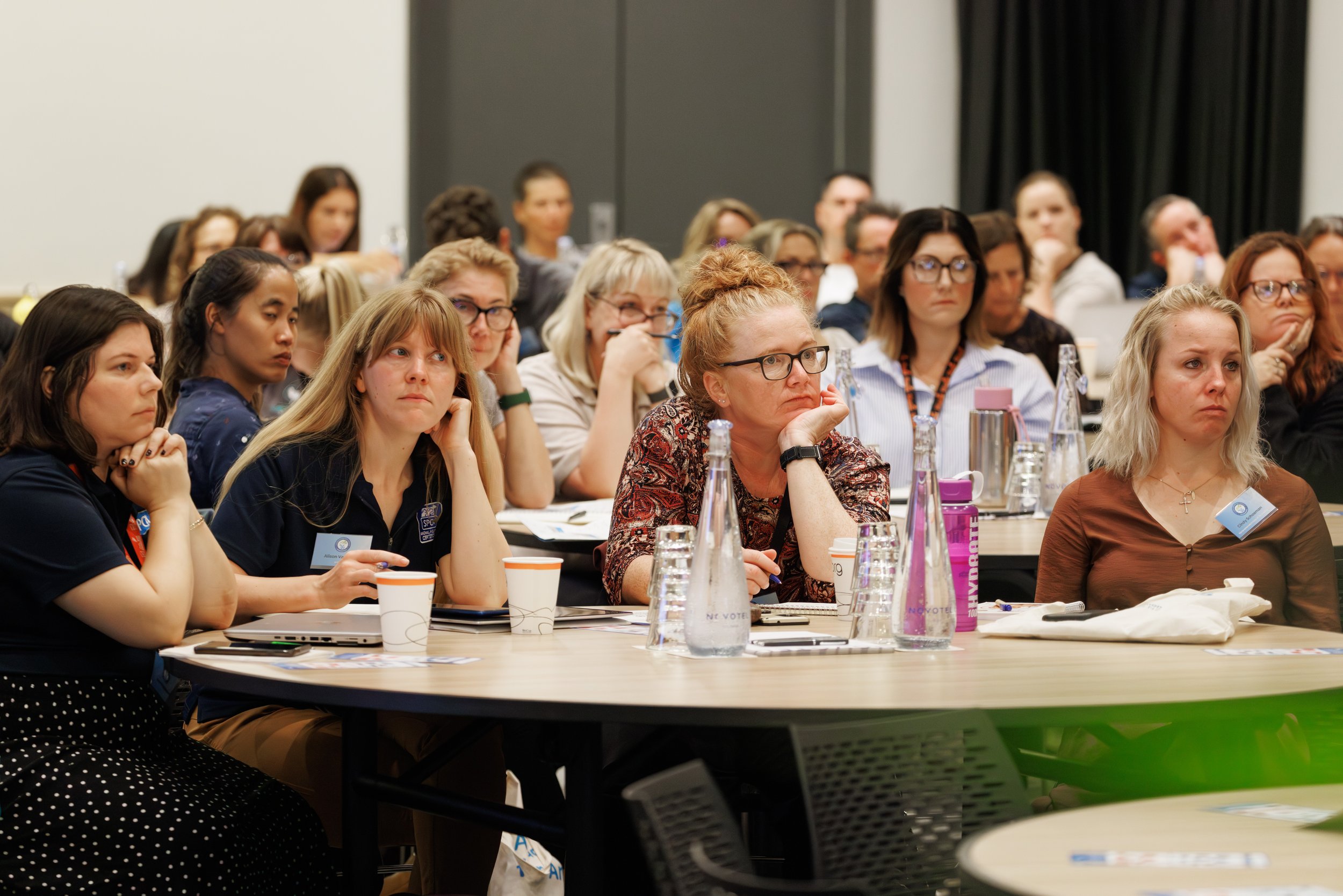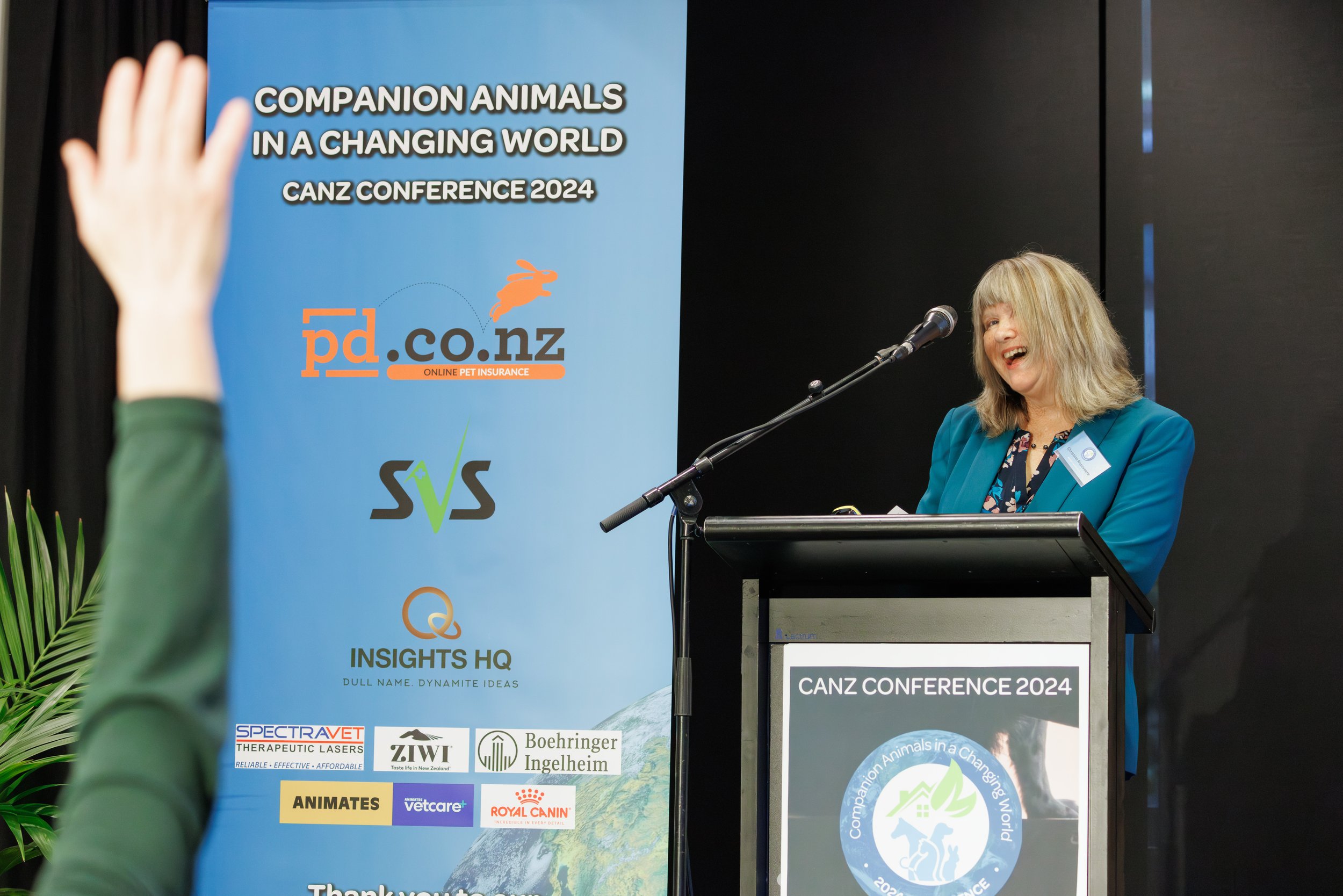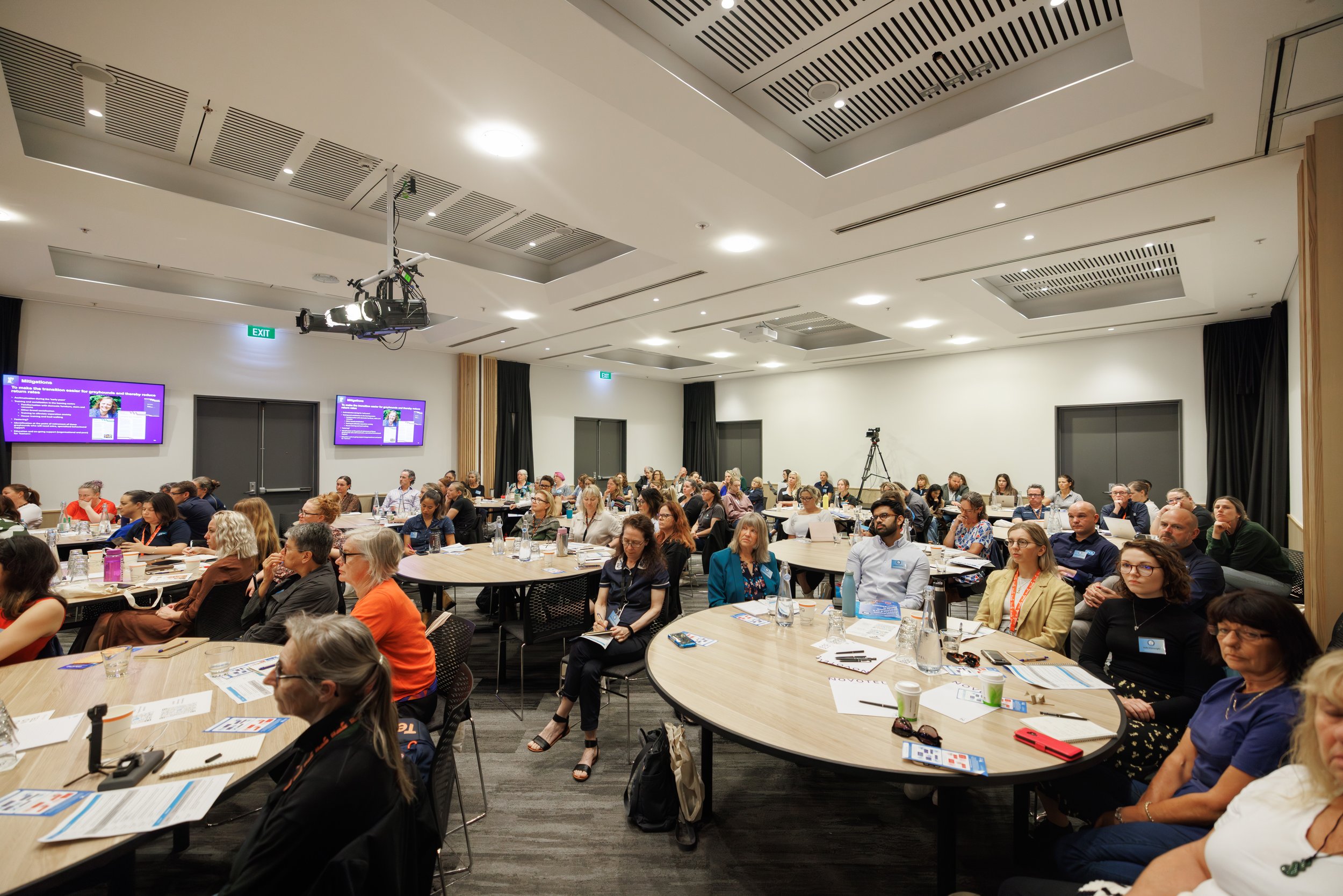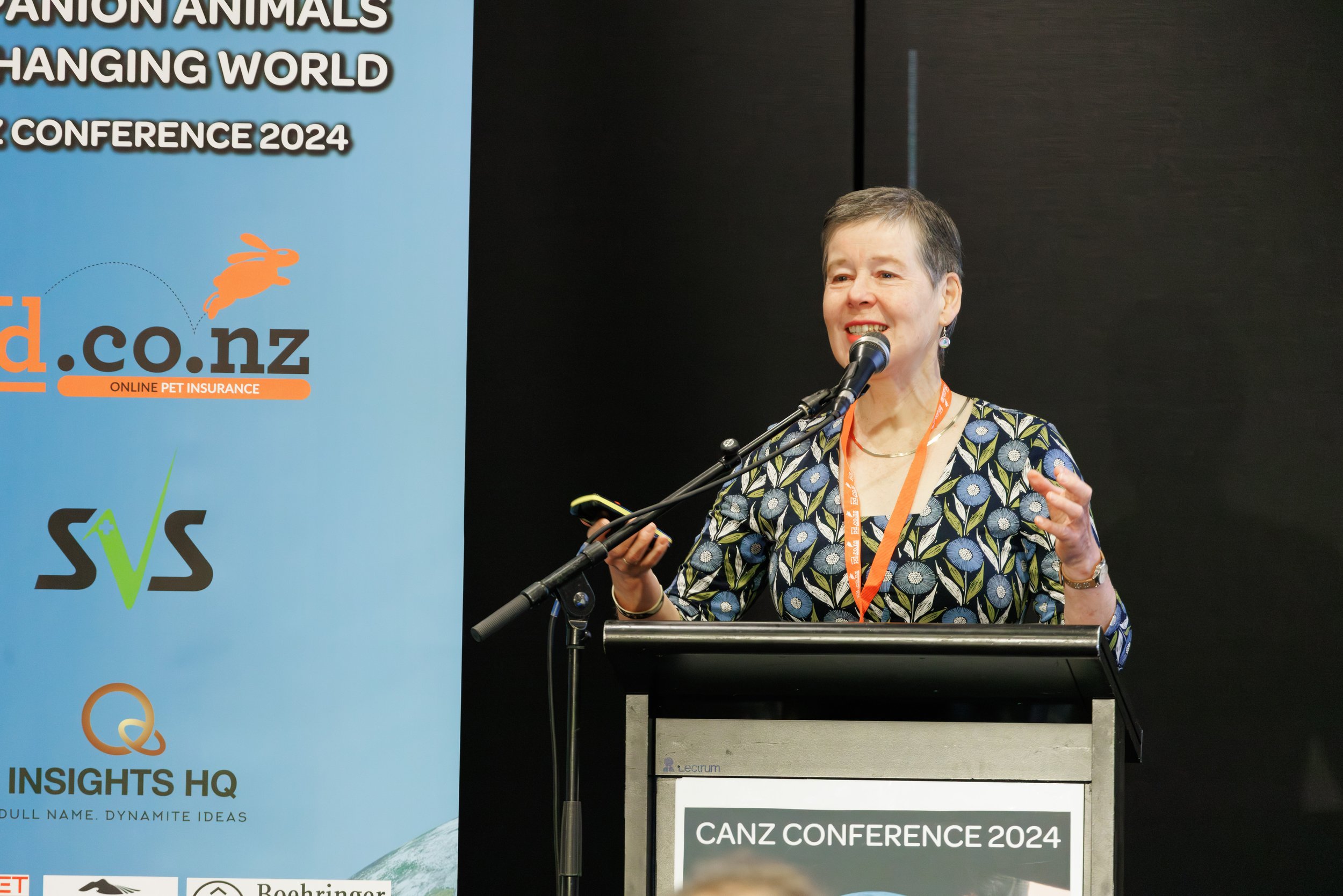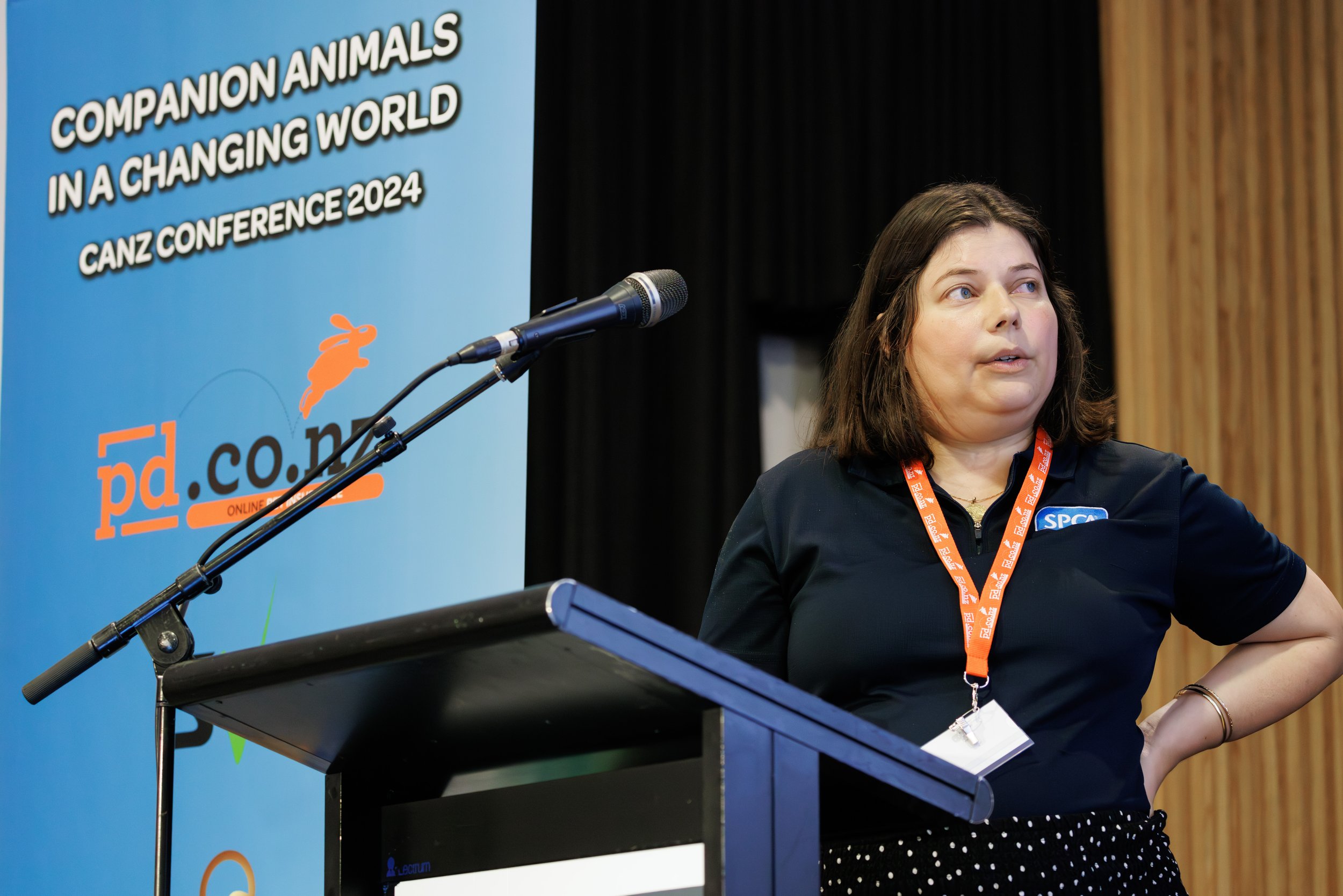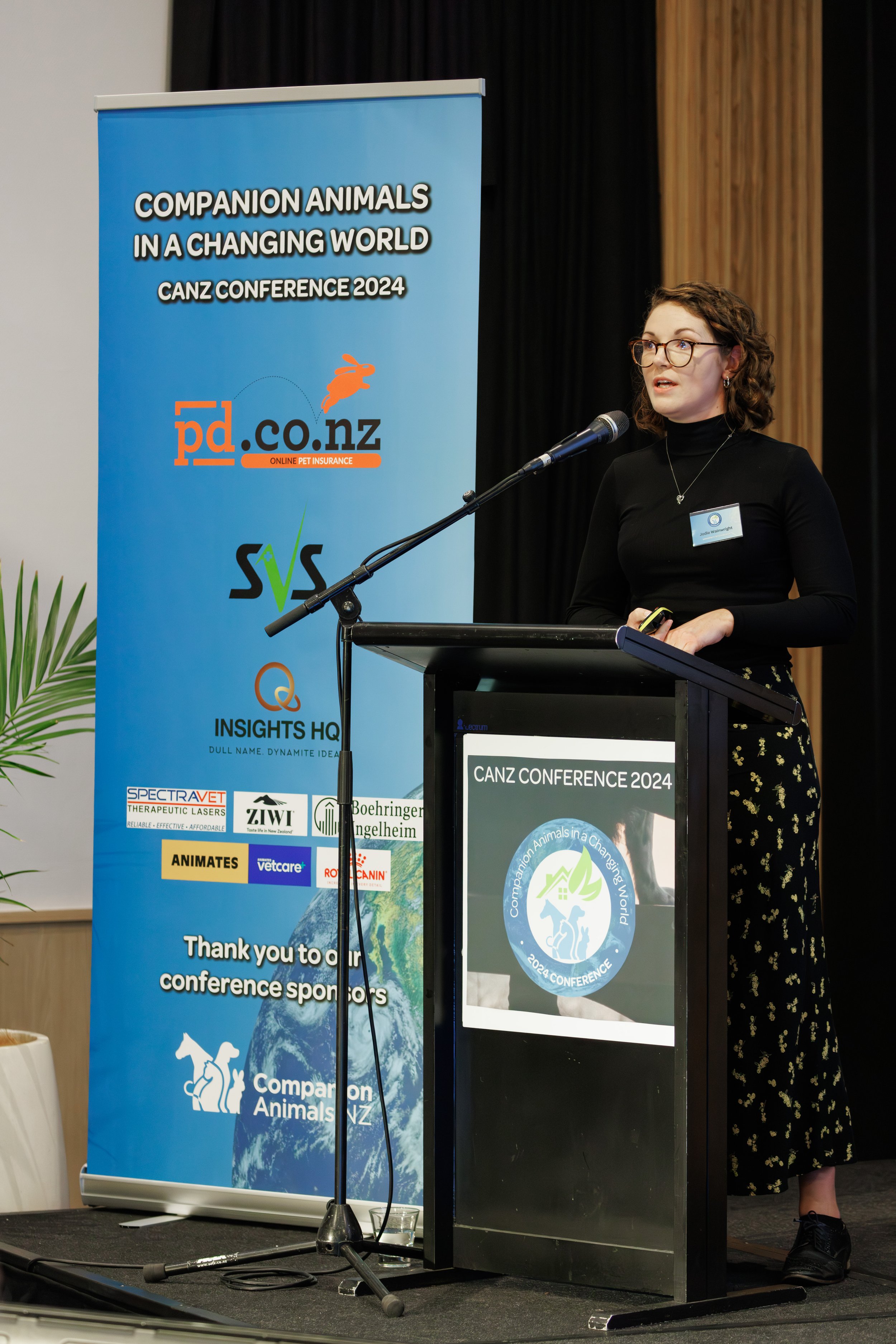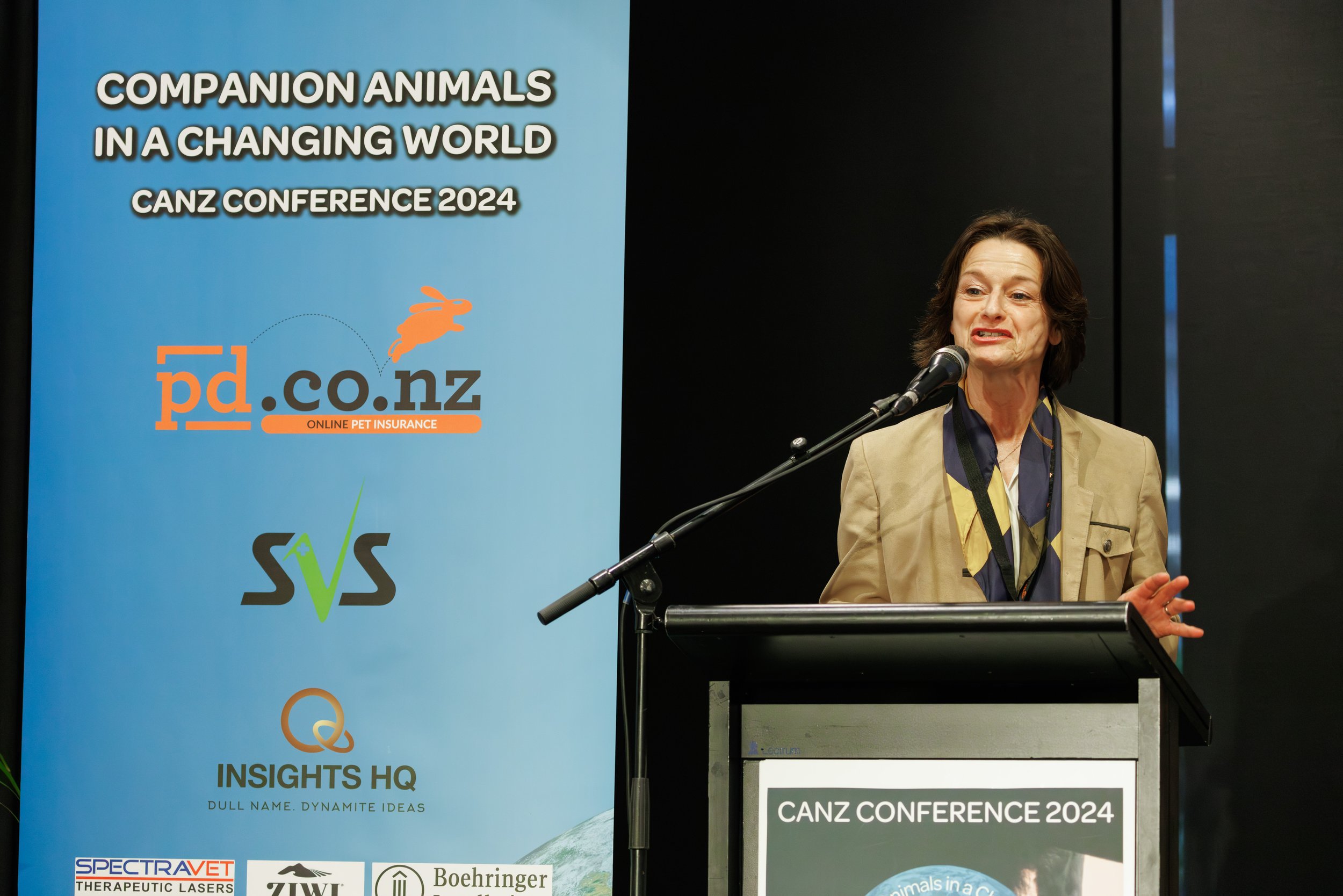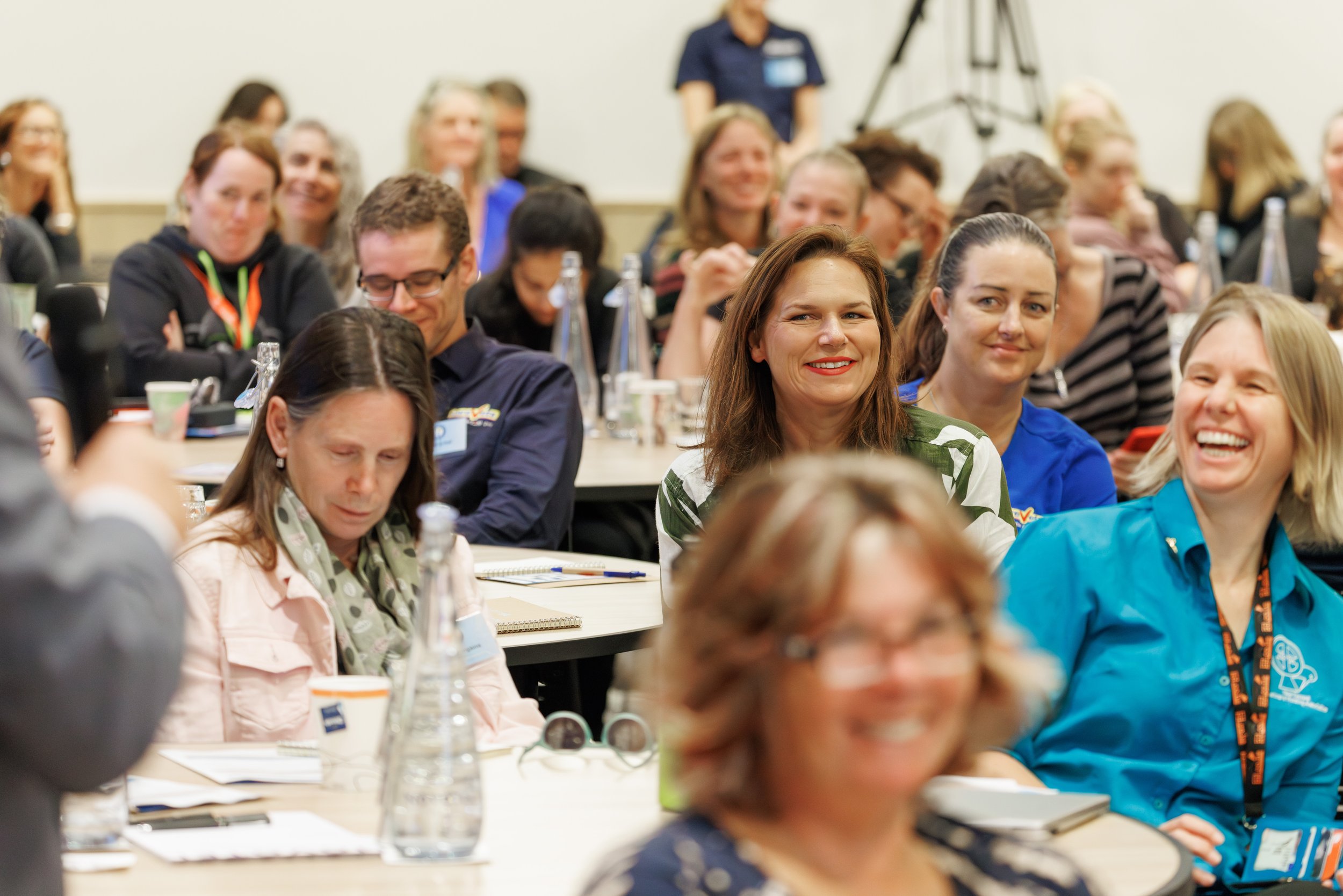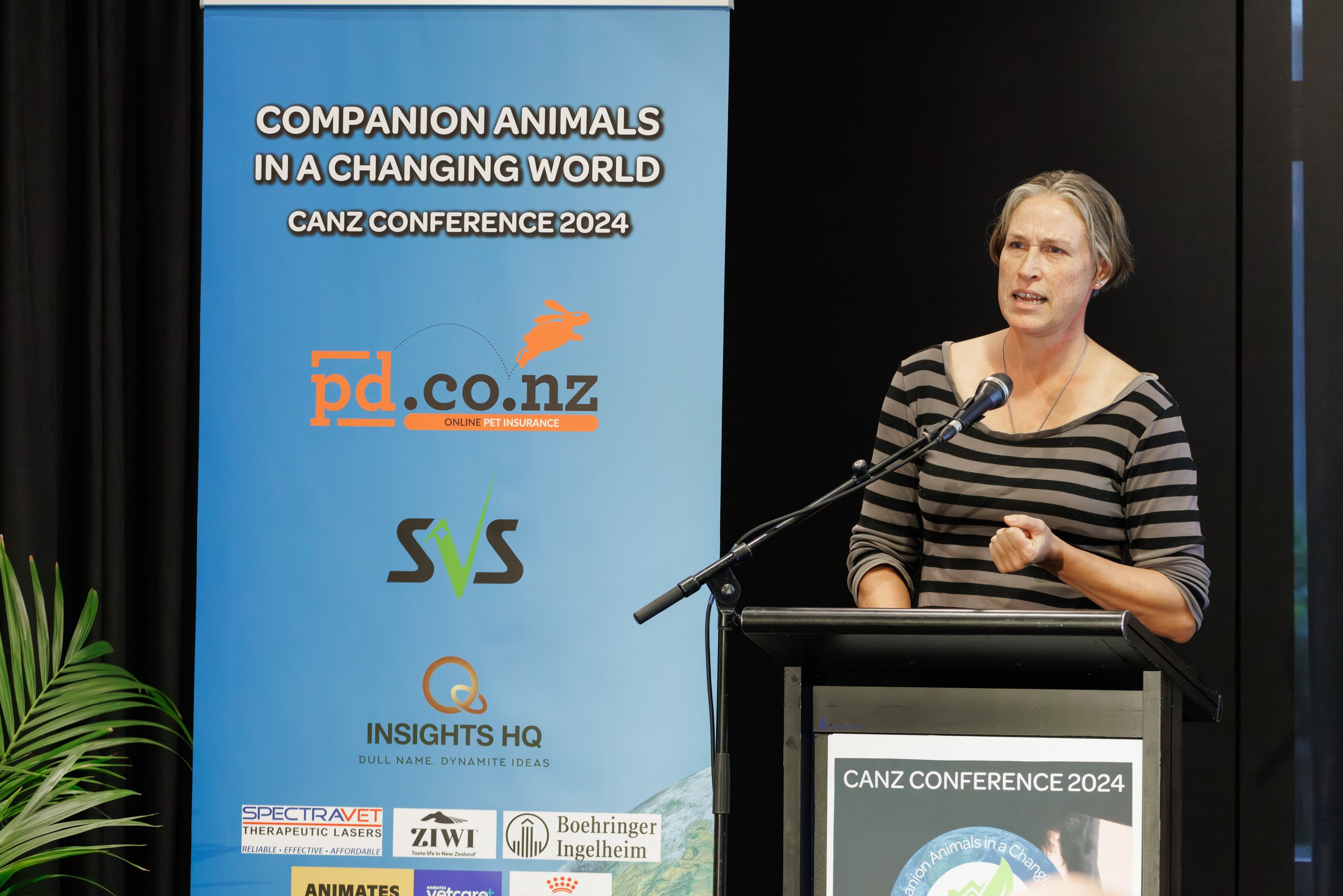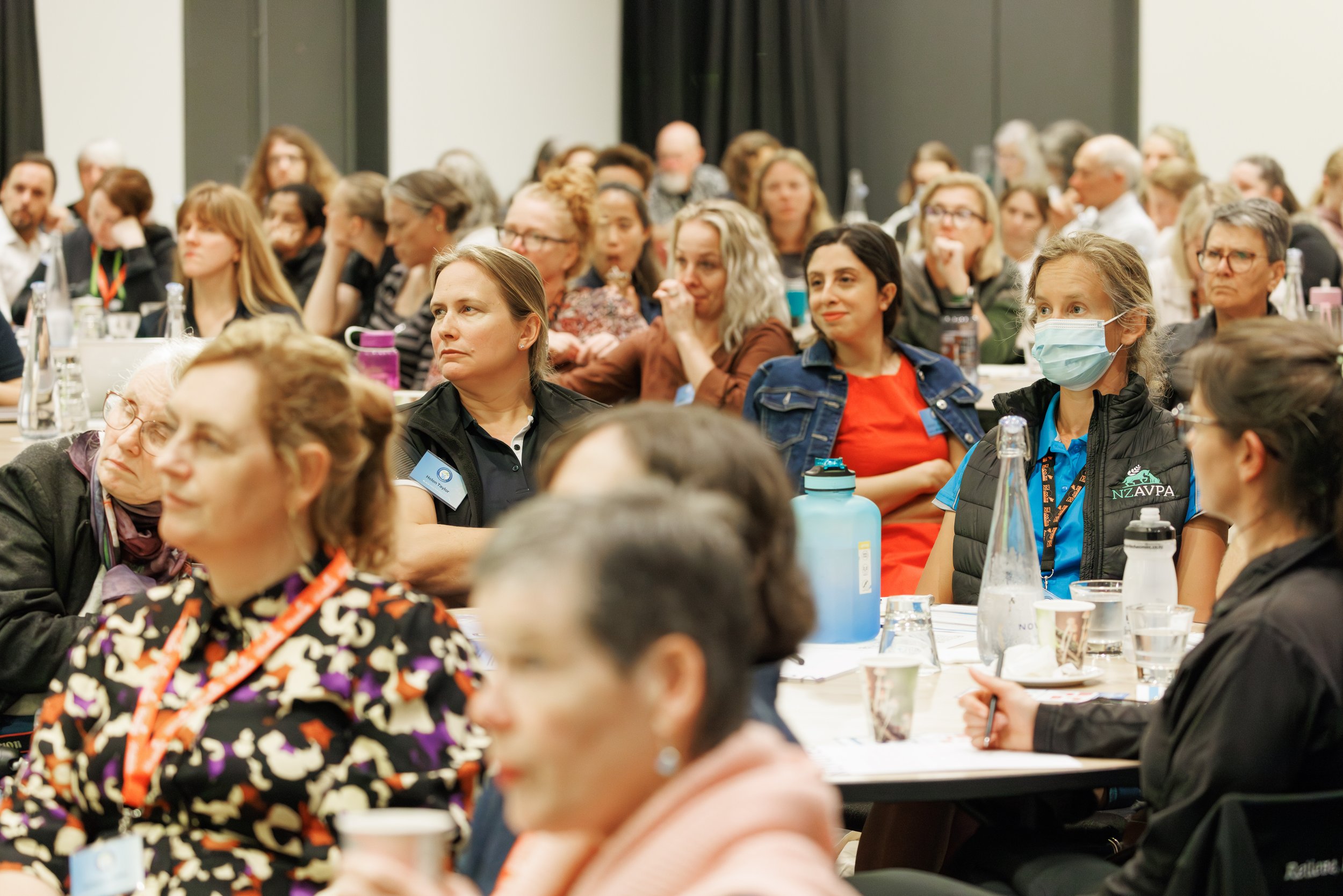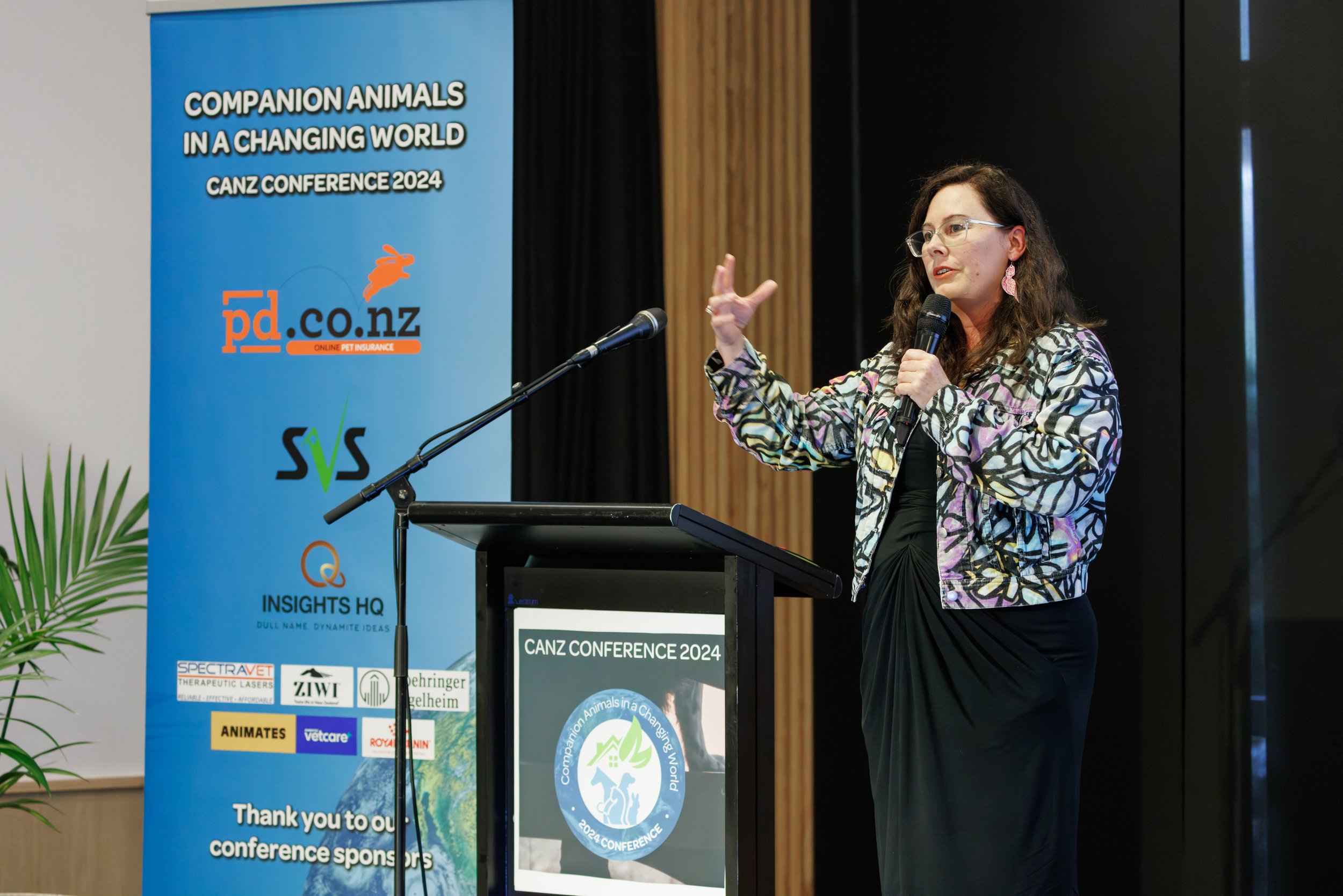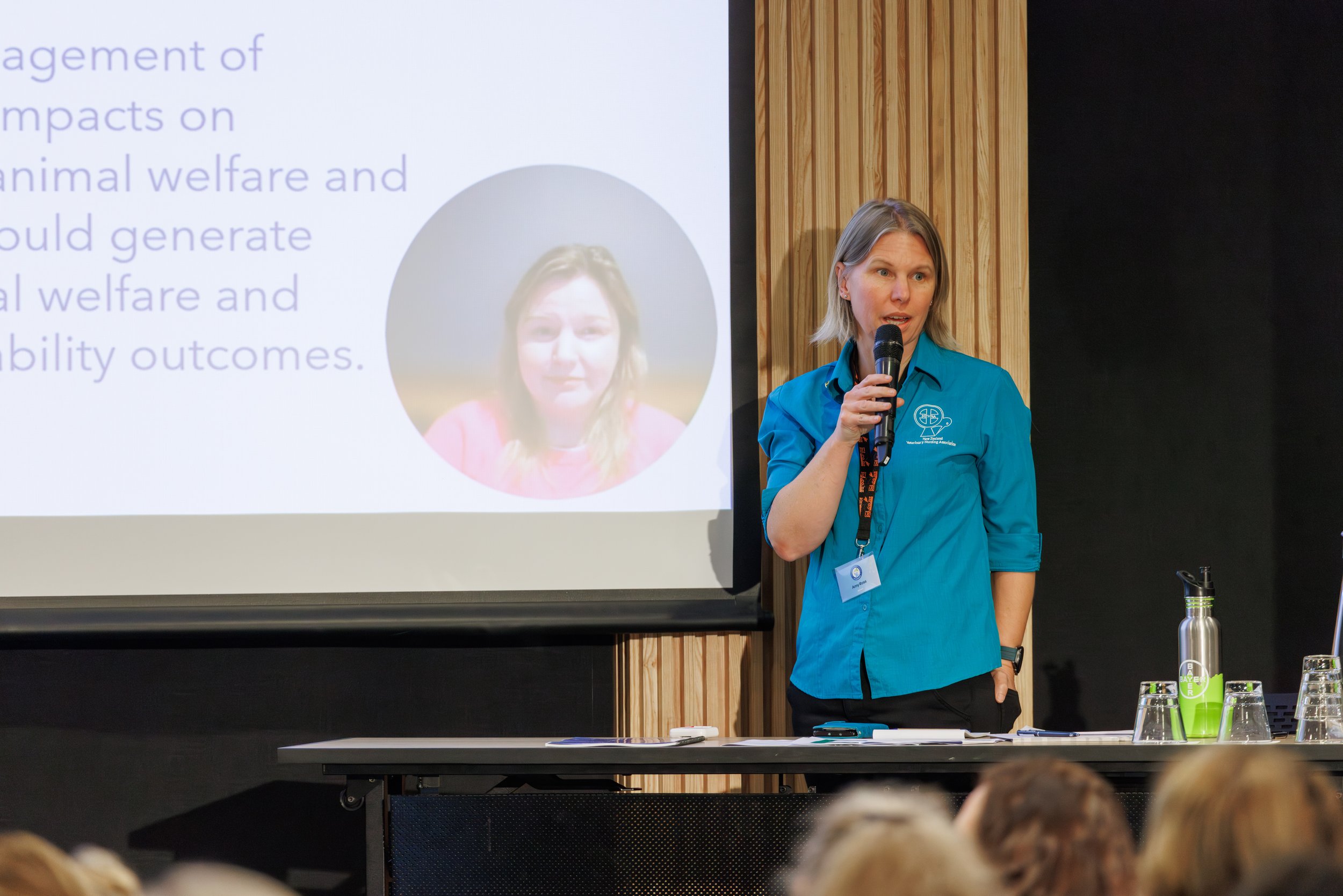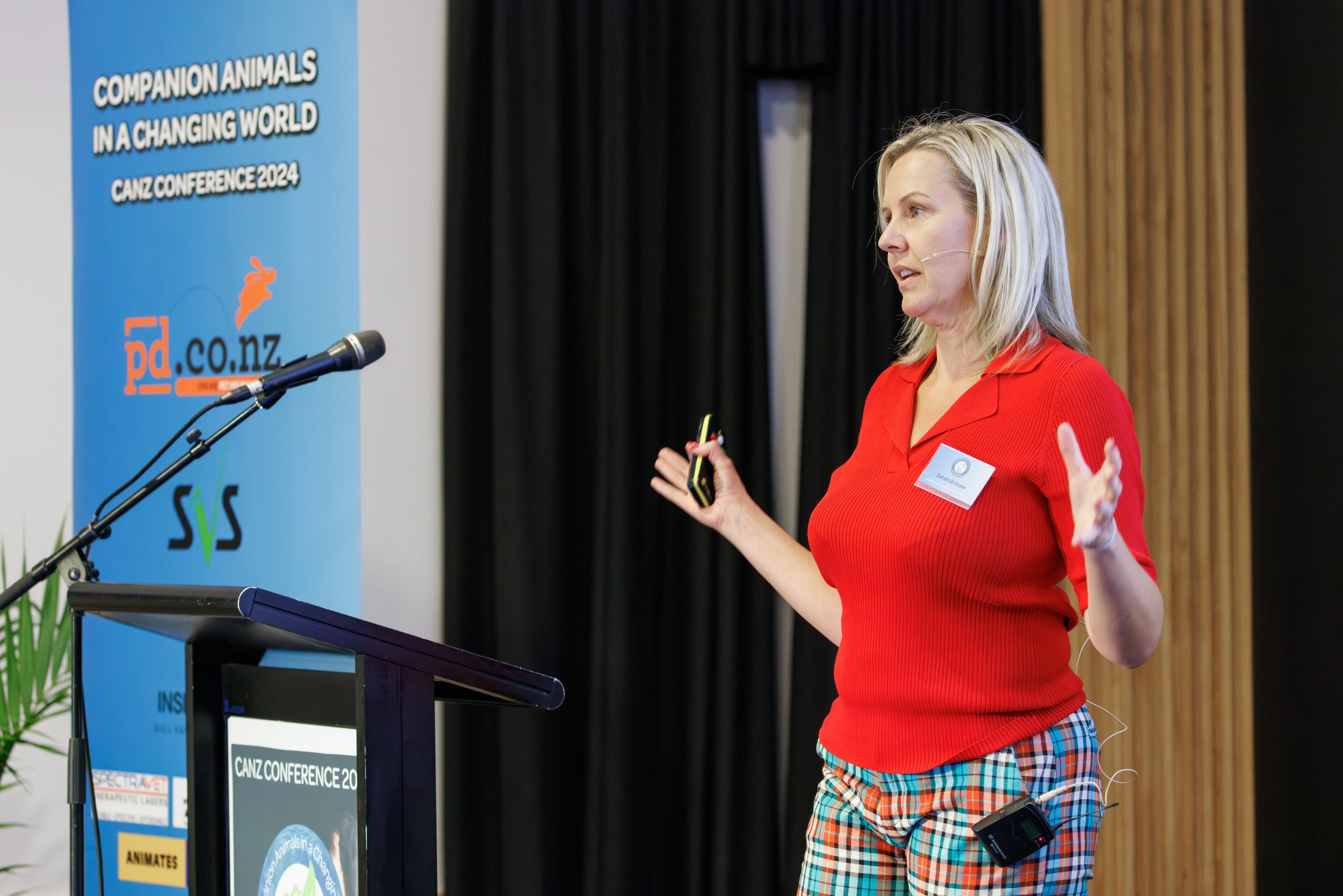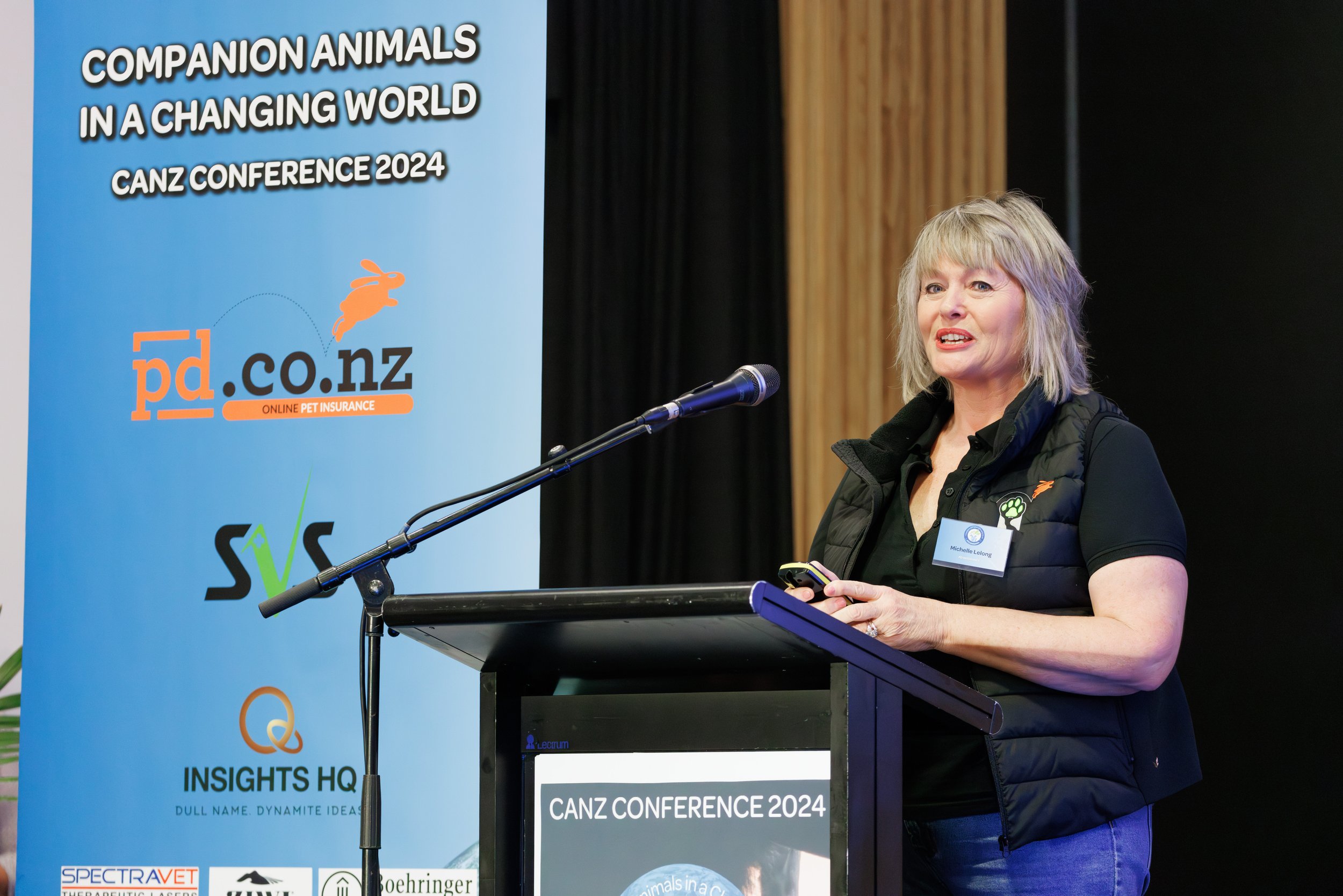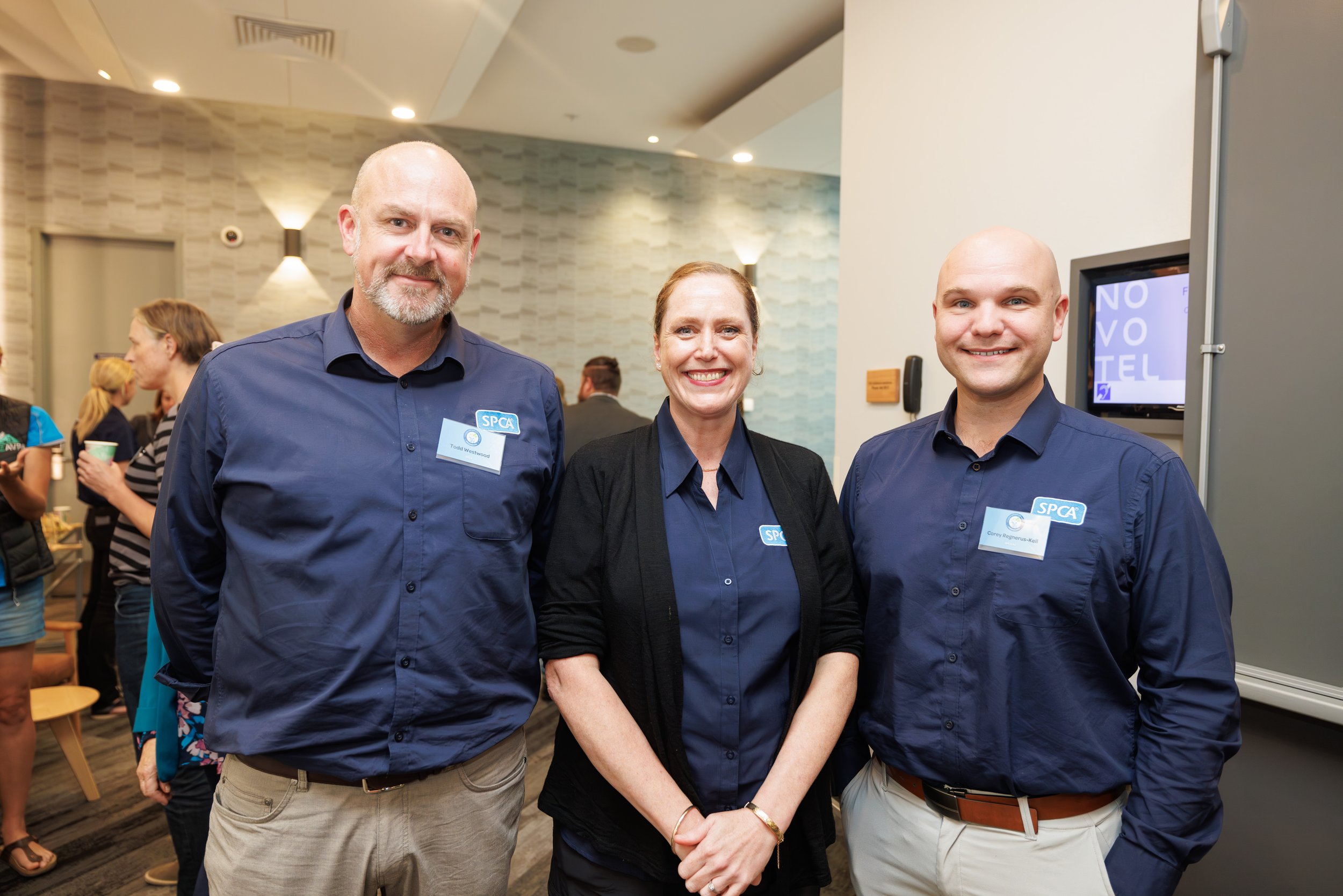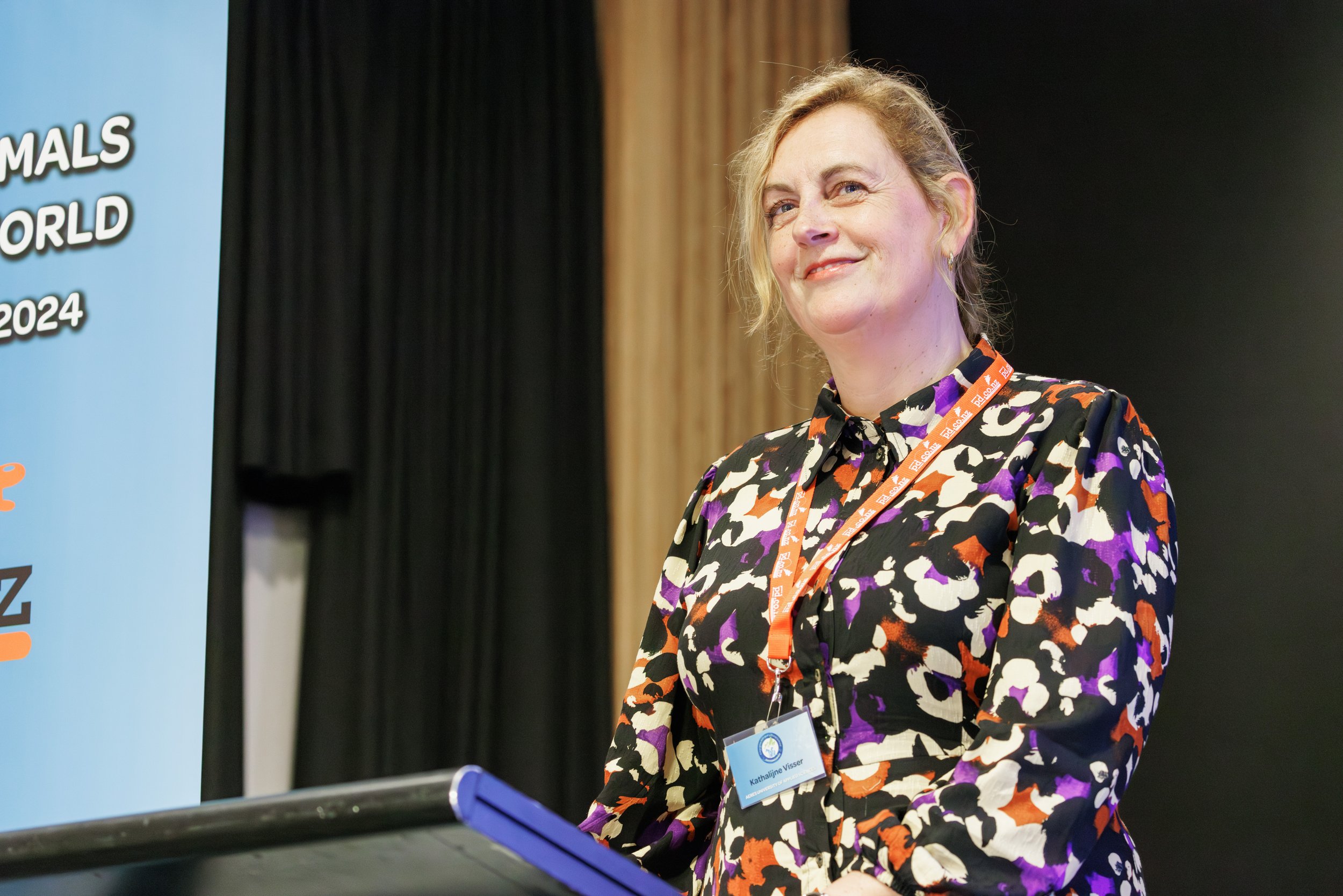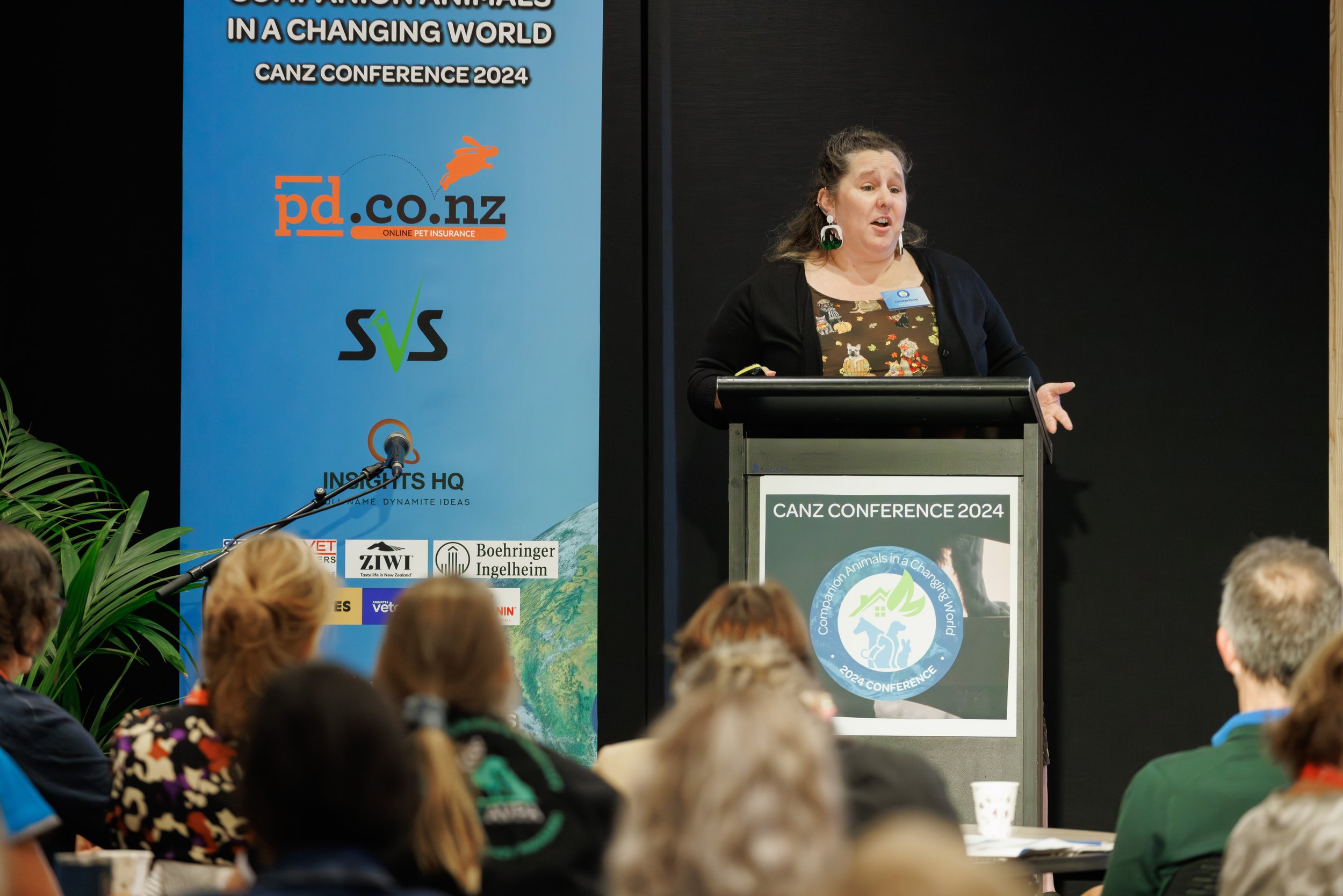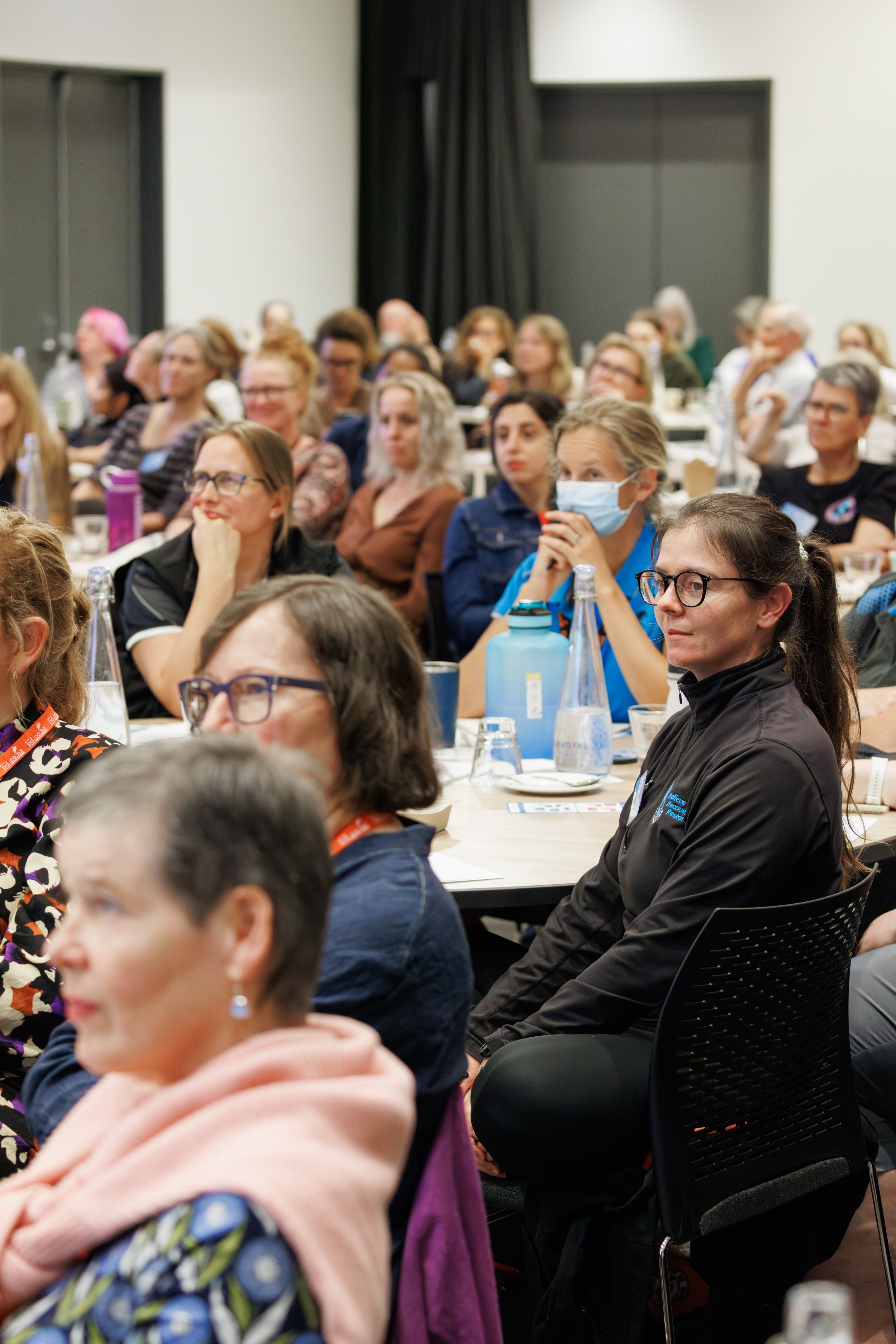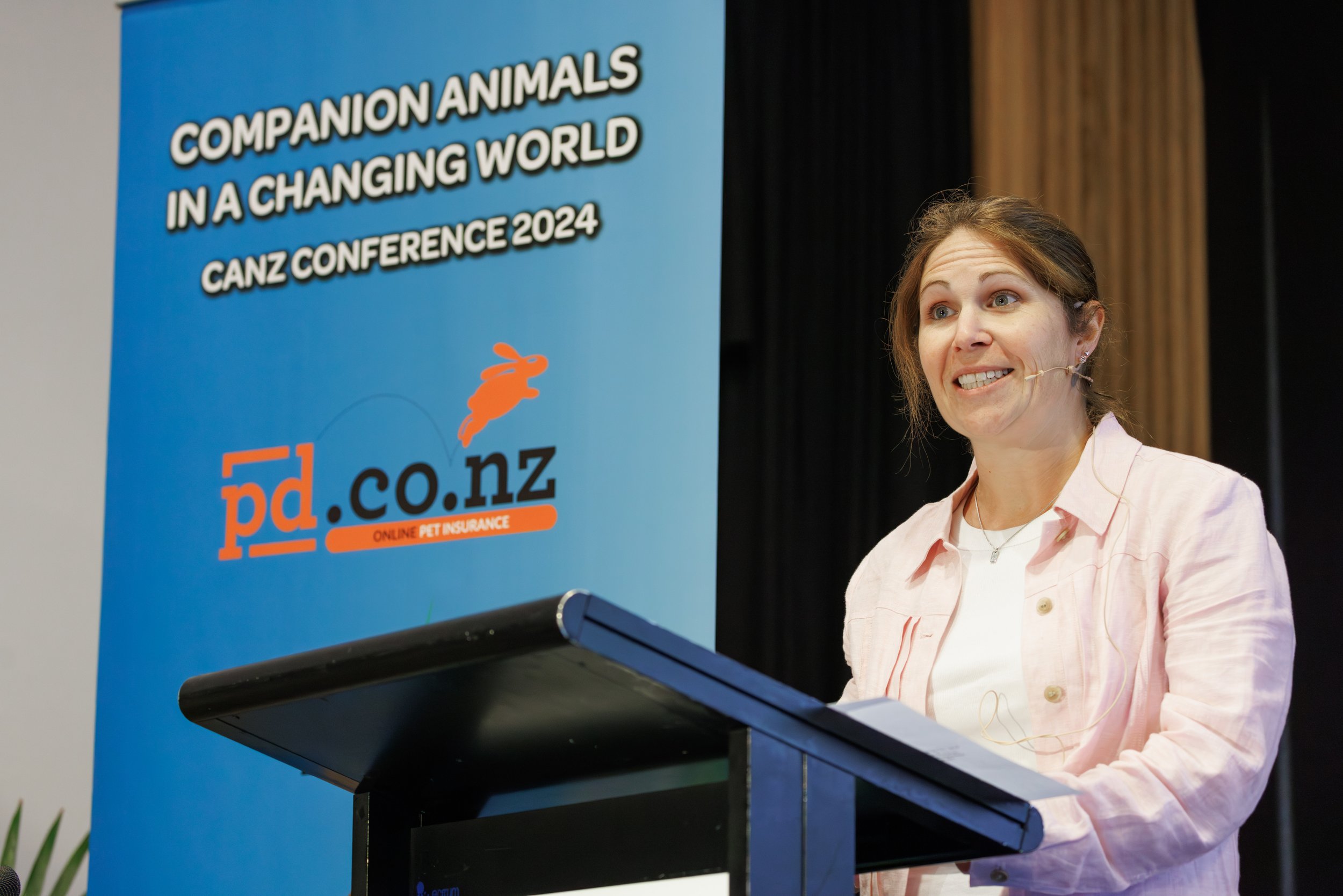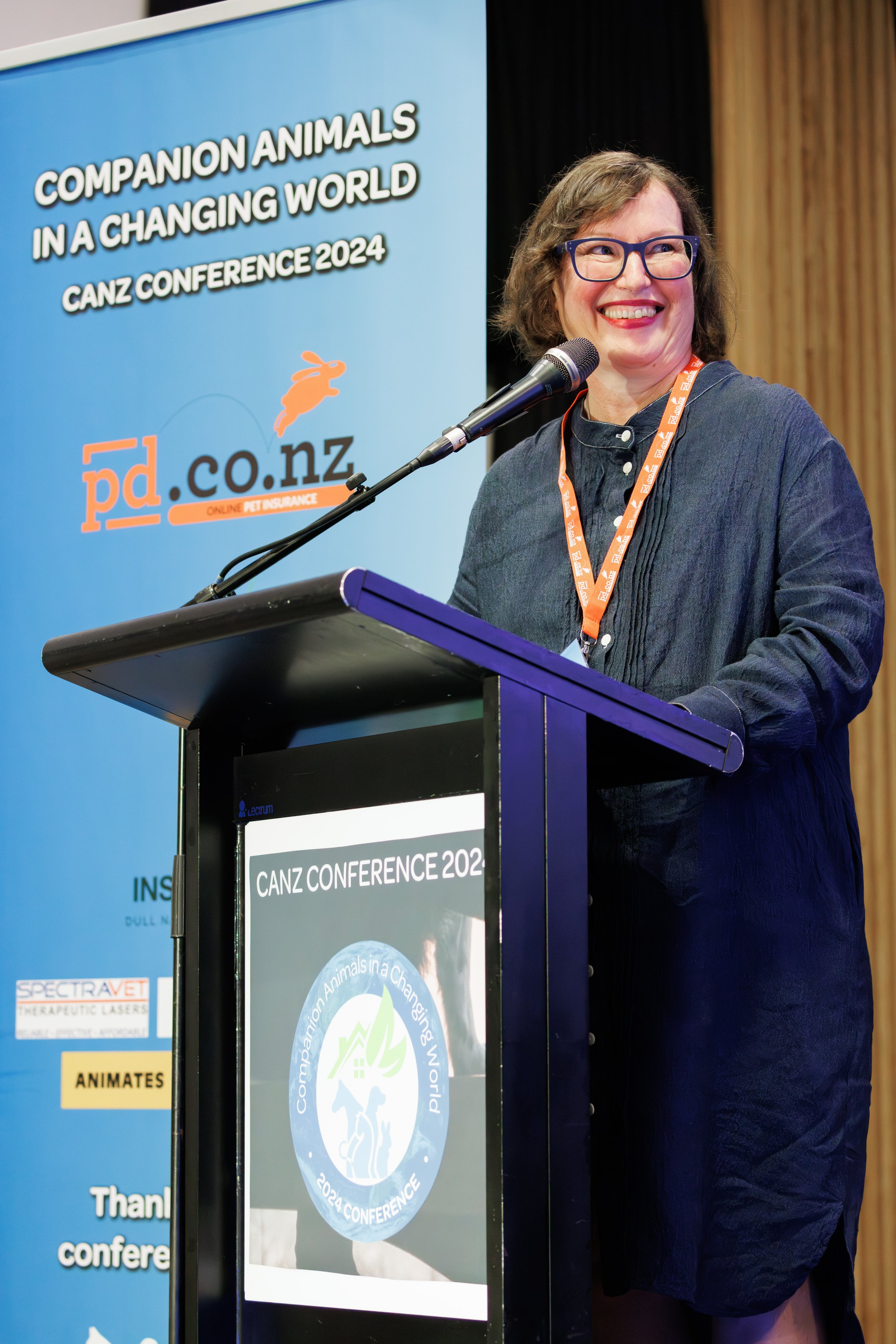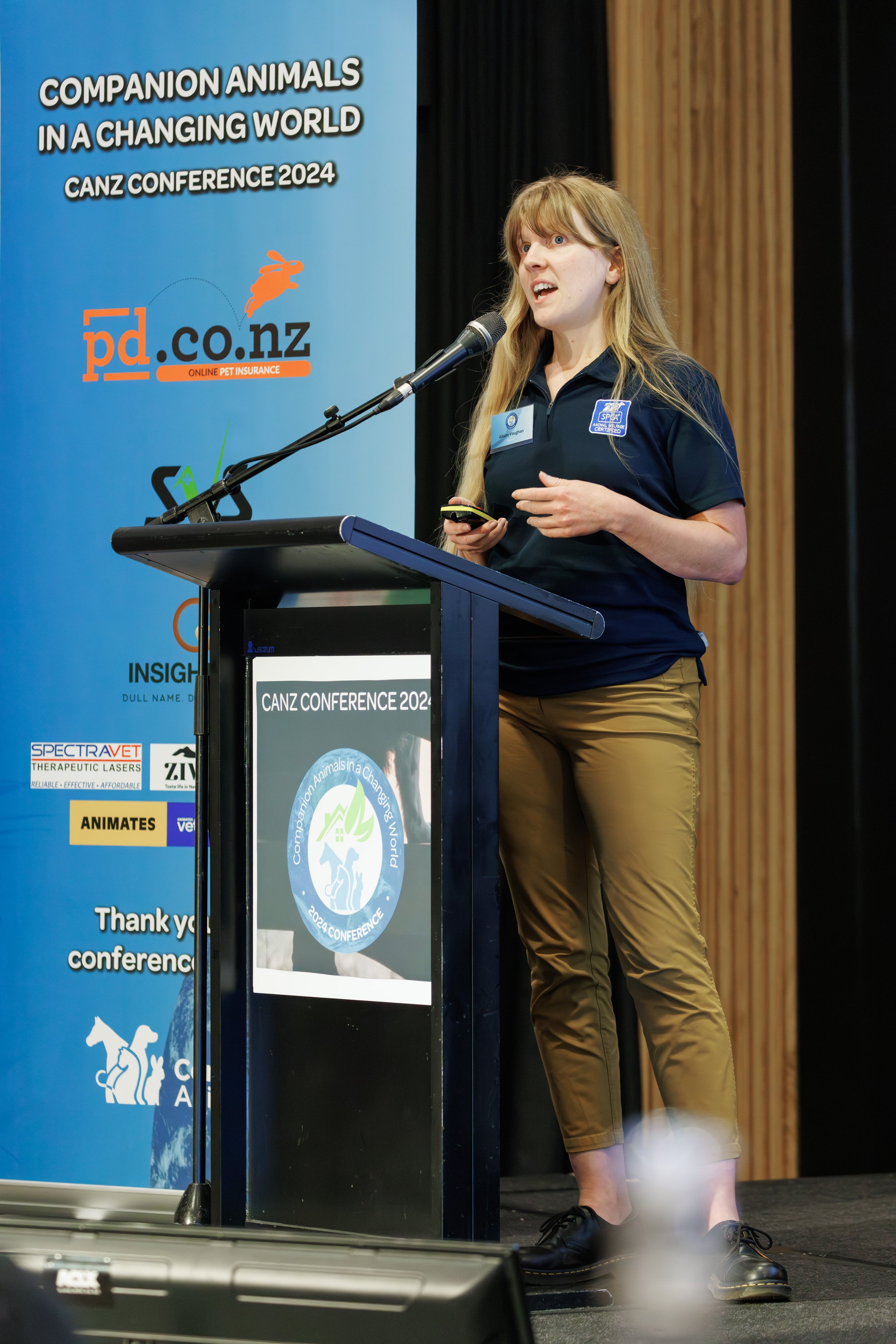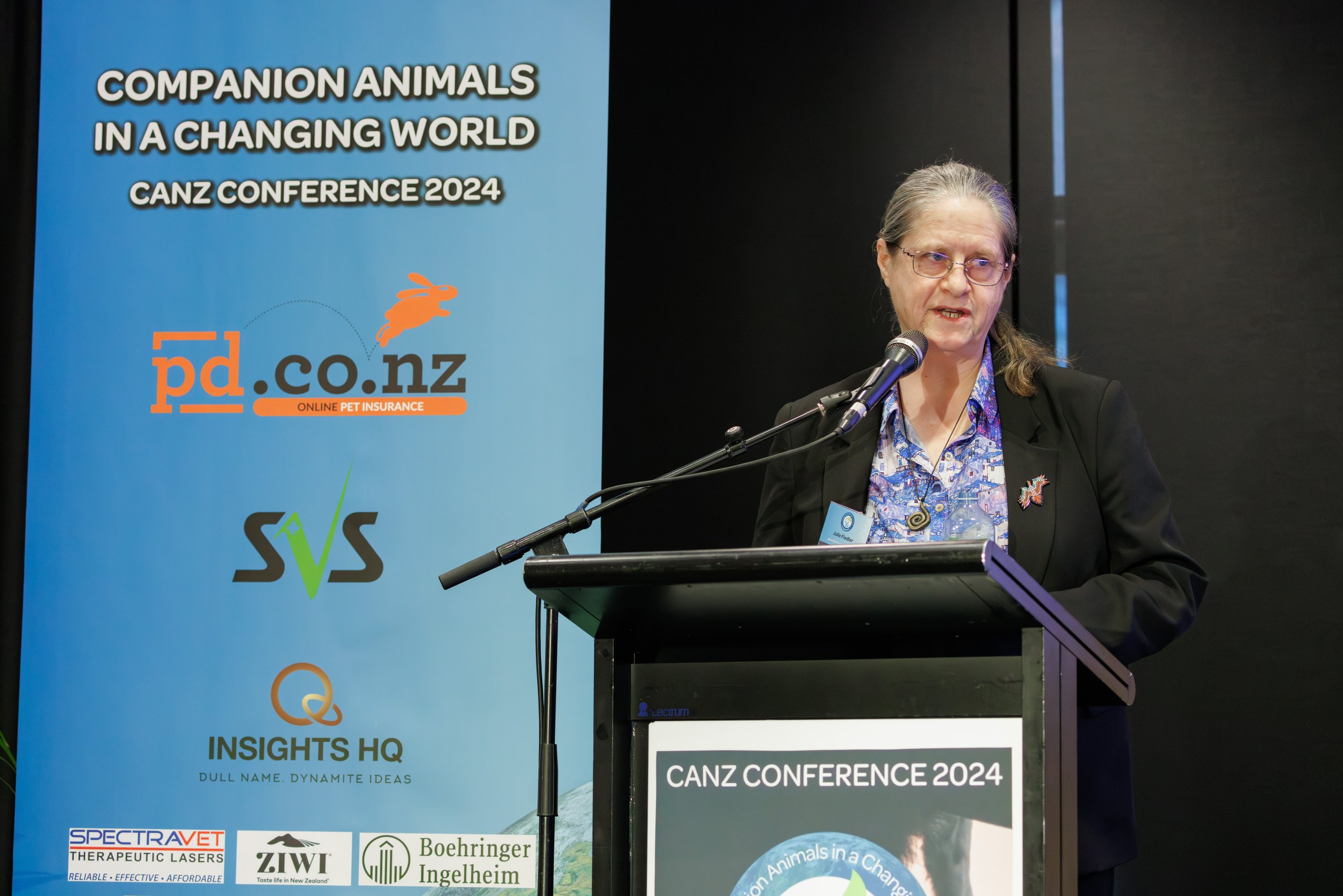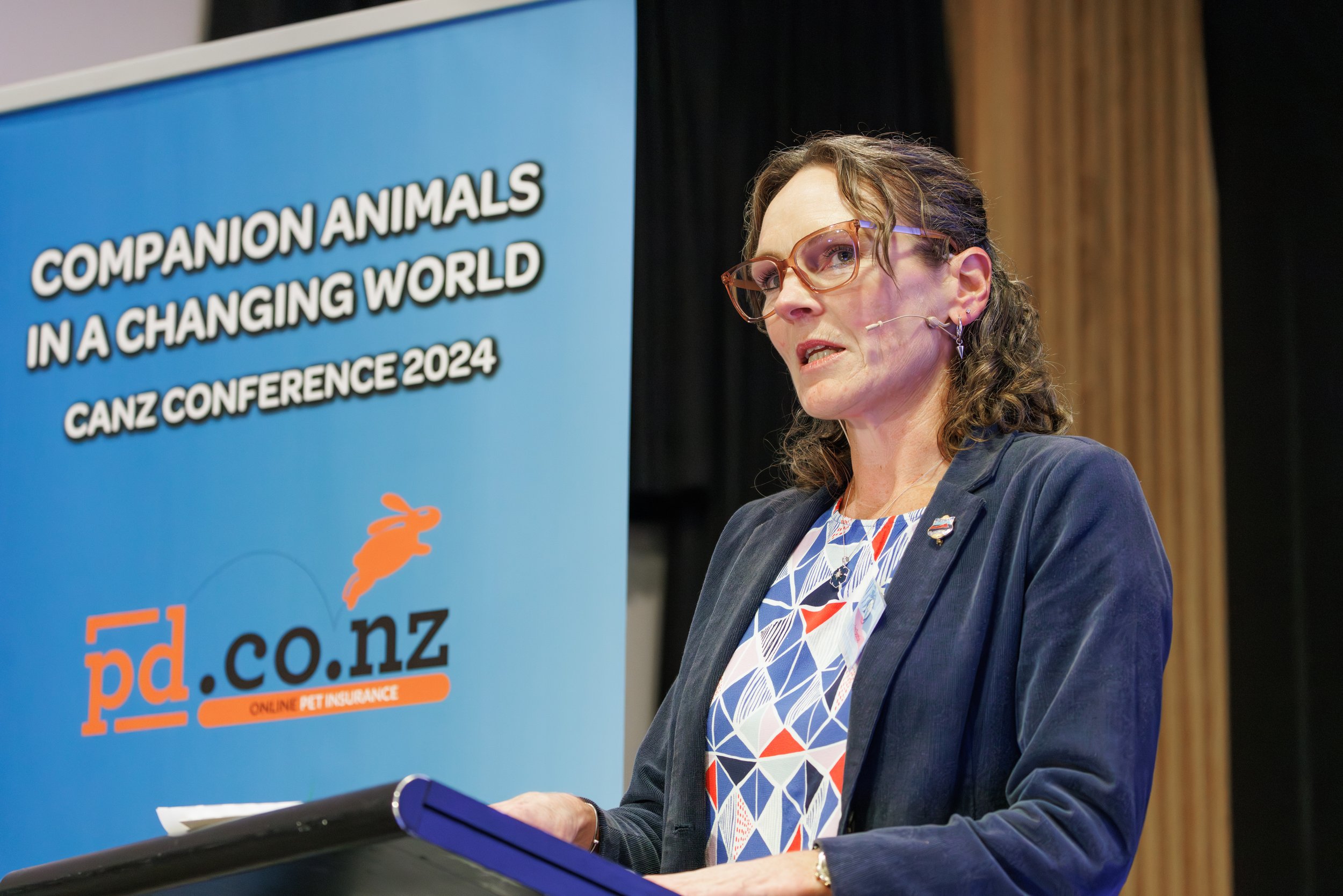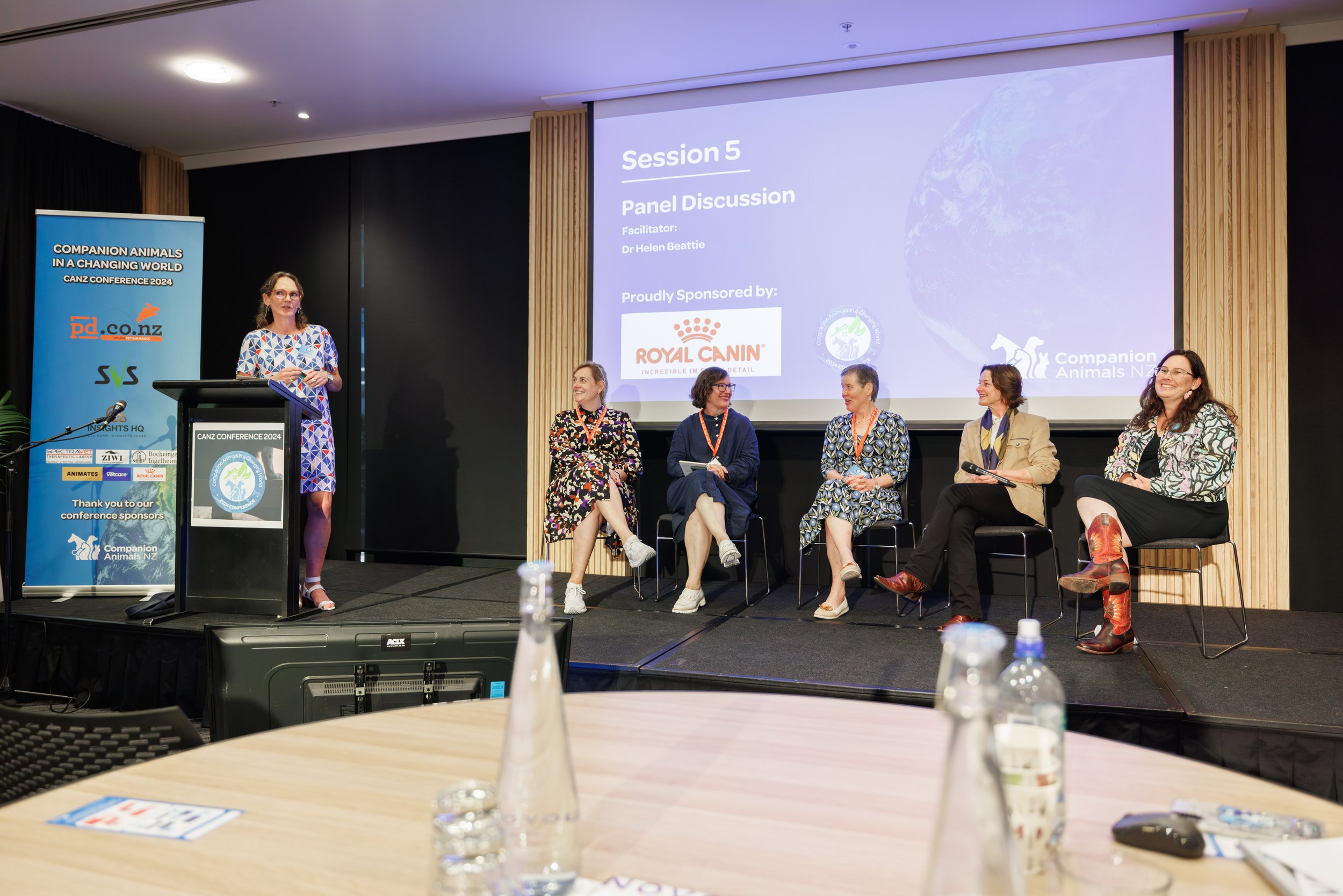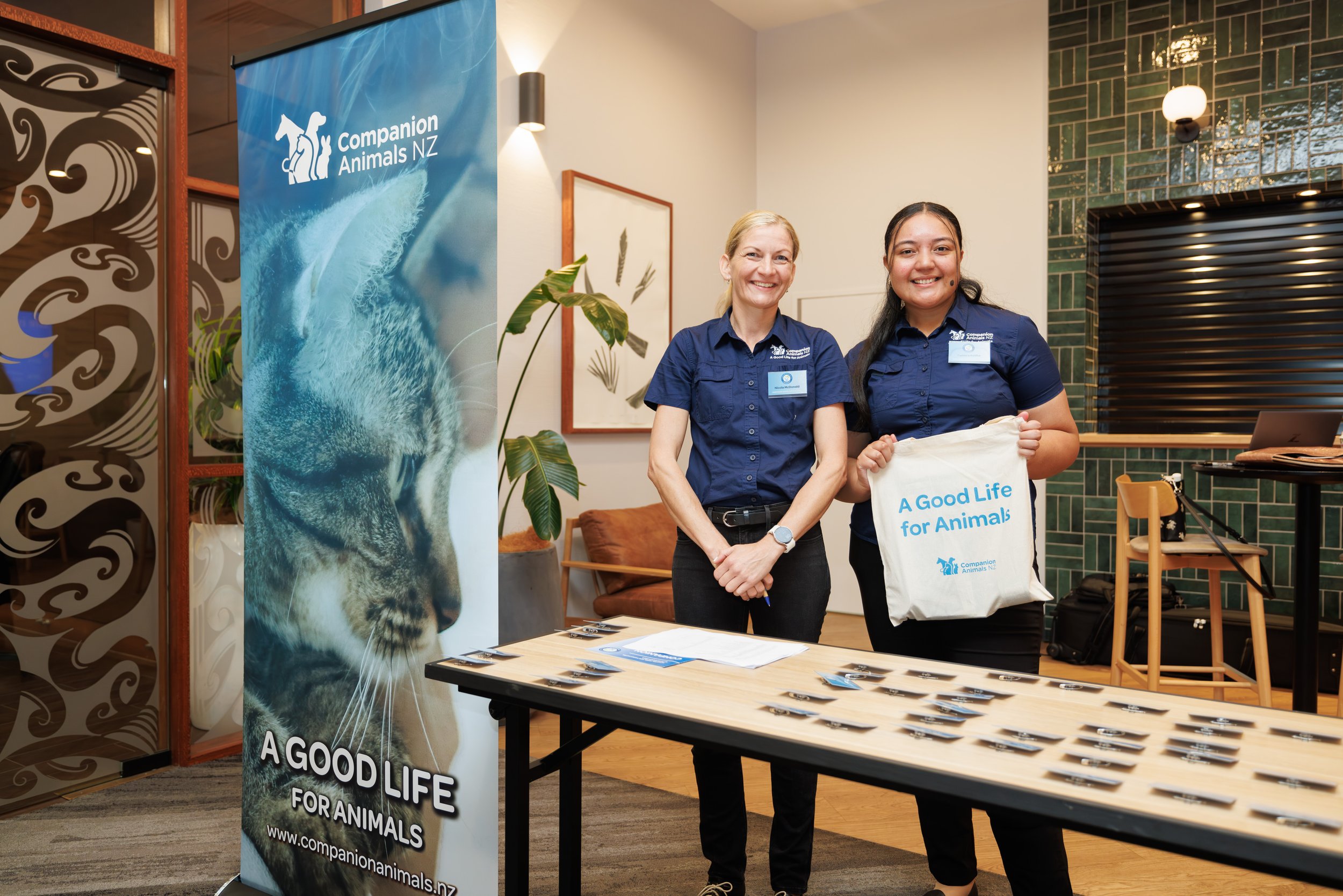Companion Animals NZ Chair, Steven Thompson, with Hon. Minster Hoggard
On 12 March, more than 120 animal welfare experts, including researchers, advocates and senior figures, gathered in Hamilton New Zealand to discuss the impact of the changing world on our pets. Hosted by Companion Animals New Zealand, this biennial conference serves as a platform to bring together diverse perspectives in animal welfare and foster industry-wide collaboration.
The day was full of insightful presentations across a number of themes – from our changing expectations and changing climate, to our changing lifestyles and how we can provide a Good Life for our companion animals in a changing world.
The conference commenced with an inaugural address by the Honorable Andrew Hoggard, Minister responsible for Animal Welfare, who underscored the intrinsic value companion animals hold in New Zealanders' lives. Drawing from personal anecdotes, including the cherished position of his own pets within his household hierarchy, the Minister emphasised New Zealand's steadfast commitment to upholding high standards of animal welfare.
Keynote speakers included professors and expert practitioners from all over the world, speaking on a variety of topics including:
how societal views and our own lifestyle and behavioural changes have impacted our pets health and welfare (for example, working families and increased incidence of ‘modern’ diseases such as obesity in humans),
how research around retired greyhounds in the UK is helping improve the success of efforts to home greyhounds and mitigate their rates of relinquishment, and
how the environmental footprint of pet management including breeding, veterinary procedures and pet food production should be considered into the future.
Also covered was the mutual benefit of the human and animal relationship and research around how we can measure an animal’s emotional experience to ensure it enjoys mostly positive emotions and has a good quality of life.
Professor Nat Waran of Companion Animals New Zealand reflected on the insights gleaned during the 2024 Companion Animals Conference, emphasising the important role this event holds as a catalyst for meaningful, forward focussed dialogue. She highlighted the importance of recognising our impact on companion animals and their welfare, and cautioned against imposing human interpretations on their experiences.
Waran remarked, "One key takeaway for me personally ist he need to view animal welfare through a lens devoid of human biases. Often, our perceptions of what constitutes a positive experience for animals may not align with their reality. As our understanding of the importance of positive human-animal relationships grows, so does our recognition of the ethical responsibilities we have towards them and their maintenance in our society."
Expressing gratitude to the diverse array of speakers whose contributions enriched the conference, Waran spoke of the collaborative spirit that drives progress in animal welfare. She noted, "These gatherings foster an environment of sharing and learning, paving the way for a more enlightened and compassionate approach to caring for our cherished companions to ensure they experience a good quality of life."
Following on from the Conference day, the gala dinner saw the announcement of four incredible winners of the Assisi Awards, recognising animal welfare excellence. The conference was also attended by participants online from various countries via a live-stream link.
Plenary and invited talks will soon be made available to the public via companionanimals.nz. Companion Animals New Zealand would like to thank all the sponsors who made this event possible – outlined below.



